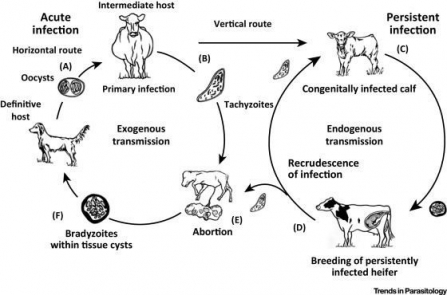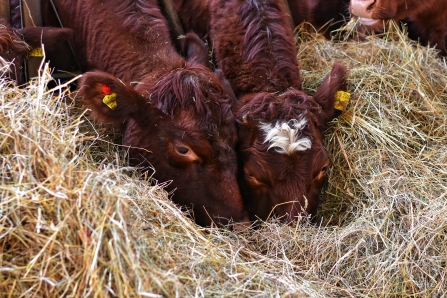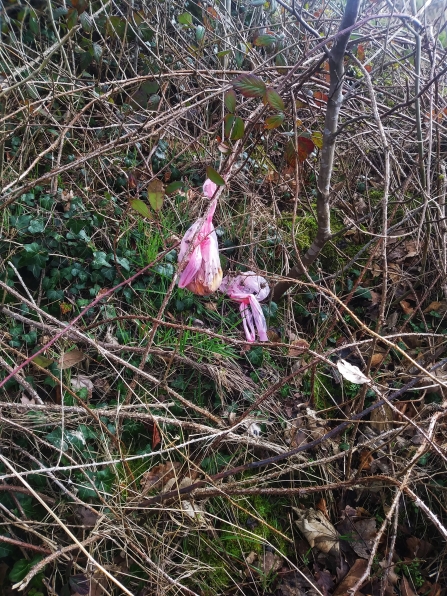Here at Stirley, our cattle are part of the Premium Cattle Health Scheme run by the Scottish Agricultural College. This means that our cows are tested for certain diseases to ensure that they are in the best health possible.
Cattle have a large vein on the underside of their tail which is where the vet collects the blood from. The process is very quick, much like when we have a blood test at the doctors.
The diseases we test for are Bovine Viral Diarrhoea (BVD), Infectious Bovine Rhinotracheitis (IBR), Johnes Disease, Leptospirosis and Neospora. We also test our cattle for TB but this is done every four years at the moment so is not due until next year. I have briefly mentioned Neospora before and I will now explain a little bit more about it and how you can help stop the spread.
Neospora caninum, to give the full name, is a parasite which can invade, live and multiply inside a living host. Below is a diagram and the steps of transmission to illustrate how dog owners not picking up dog mess are the main culprit in spreading this infection.




